A-C
| D-H | J-L | M-P | R-T
| U-Z
|
| A-C |
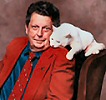
|
Cleveland
Amory
(1917-1998) Author and animal rights promoter
Amory devoted his life to promoting
animal rights. He was best known for his books about his cat
Polar Bear, whom he rescued from New York streets on Christmas Eve,
1977. Amory co-founded the Humane Society of the United States
and founded the Fund for Animals. He was also the president of NEAVS
(New England Anti Vivisection Society) from 1987 to 1998. |
|

|
Ian Anderson (1947- )
Musician
Ian, of the classic rock band Jethro Tull, is a cat lover. A page
on the official Jethro
Tull webpage is dedicated to his writings about cats.
|
|

|
Marie Antoinette
(1755-1793) Archduchess of Austria and the Queen of France and Navarre
King Louis XVI and wife,
Marie Antoinette, allowed their Angora cats to roam about the tables
during court gatherings. Legend has it that six of
her beloved white Angora cats arrived by ship in Maine, USA in the ship
she had intended for her escape during the French revolution.
|
|

|
Pope Benedict XVI (born Joseph Alois
Ratzinger, 1927- ) Reigning head of the Roman Catholic Church and
sovereign of
Vatican City State
His
cat Chico, a black-and-white domestic short hair, continues to live at
the pope’s home in Tübingen, Germany (pets are not allowed in the
Vatican). Cardinal Roger Mahony, archbishop of Los Angeles, who was in
Rome for the pope’s inauguration, says “The street talk
that the pope loves cats is incorrect. The pope adores cats.”
|
|
(no image
available)
|
Sultan El Daher
Beybars (13th century) Ruler of Egypt and Syria
In his will Sultan
El
Daher Beybars, who
was devoted to cats, bequeathed a garden known
as Gheyt-el-Quoltah (the cats' orchard) near his mosque in Cairo
for the support of homeless cats. The tradition continues to
this day.
At the time of afternoon prayer each day, meat is brought into the
center of the garden, and cats from all over the city come for their
share.
|
|

|
Alexander Borodin
(1833-1887) Russian classical composer and
chemist
Borodin had many cats, one of which - Ryborov - learned to fish through
holes in the ice in winter. ('Ryborov' means 'fisherman'.)
|
|

|
Charlotte Bronte
(1816-1855); Emily Bronte (1818-1848); Anne Bronte
(1820-1849)
Authors
The three sisters were well-known as cat lovers. Their novels and
poetry often showed their relationships with their felines. Charlotte
and Anne often referred to their cats in their diaries.
|
|
 |
George Burns (1896-1996)
American comedian, actor, and producer
George Burns called his cat "Willie," reportedly because "when you tell
the cat what to do, there's always a question of will he or won't he." |
|
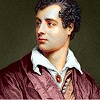
|
Lord George Byron
(1788-1824) Poet
An lifelong friend, Poet Percy Shelley, once commented that Byron's
"eight enormous dogs, three monkeys, five cats, an eagle, a crow, ... a
falcon, five peacocks, two guinea hens, and an Egyptian crane; and all
these, except the horses, walk about the house ..."
|
|

|
Raymond Chandler (1888-1959) Author
(Phillip Marlowe private eye novels)
Chandler
talked
to his black Persian, Taki, as though she was human and called
her his secretary because she sat on his manuscripts as he tried to
revise them. He stated, "A cat never behaves as if you were the
only bright spot in an otherwise clouded existence...this is another
way of saying that a cat is not a sentimentalist, which does not mean
that it has no affection."
|
|
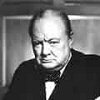
|
Sir Winston Churchill (1874-1965)
British politician (notably, UK prime minister during World War II)
Churchill's
marmalade
cat Jock slept with his
master, shared his dining table, and attended numerous war-time Cabinet
meetings. If Jock was late for meals, Churchill would send servants to
find him, waiting to eat til the cat was present. Jock was said to have
been with his master when he died. Churchill also had a cat, Nelson,
named after the famous British admiral.
|
|

|
Jean Maurice Eugène Clément
Cocteau (1889–1963) French poet, novelist, dramatist,
designer, boxing manager and filmmaker
Cocteau
is
best known for his 1929 novel Les
enfants
terribles,
the 1929 play Les
parents terribles, and the 1946 film, Beauty
and
the Beast.
His famous
quotes include: “I love cats because I enjoy my home; and little
by little, they become its visible soul” and "A meow massages the
heart." He dedicated Drôle
de
Ménage to his cat Karoun, whom he described as "the
king of cats."
|
| D-H |

|
Charles Dickens (1812-1870) Author
(works include Oliver Twist,
Nicholas Nickelby, David Copperfield, A Christmas Carol)
Charles'
cat,
Willamena, produced a litter of kittens in his study. Dickens was
determined not to keep the kittens, but he fell in love with one female
kitten who was known as "Master's Cat". She kept him company in his
study as he wrote, and when she wanted his attention she was known to
snuff out his reading candle.
|
|

|
Alexander
Dumas
(1802-1870) Author (works include The
Three
Musketeers and The
Count of
Monte Cristo)
Dumas
owned
a cat called Mysouff. This cat was known for his extrasensory
perception of time. Mysouff could predict what time his master would
finish work, even when his master was working late.
|
|

|
Albert Einstein (1879-1955)
Physicist
Fond of animals, Einstein kept a tomcat named Tiger
who tended
to get depressed whenever it rained. One acquaintance recalled him
saying to
the melancholy cat: "I know what's wrong, dear fellow, but I don't know
how to turn it off." Einstein was also quoted as saying, "A man
has to work so hard so that something of his personality stays alive. A
tomcat has it so easy, he has only to spray and his presence is there
for years on rainy days."
|
|

|
T.S. Eliot (1888-1965) Nobel
Prize-winning British poet and playwright
T.S.
Eliot was a cat lover and wrote an entire book of poems about cats. His
Old Possum's Book of
Practical Cats was set to music by Andrew Lloyd Weber and
became the long-running musical, Cats.
|
|

|
Robert Goulet (1933- ) Recording
artist, star of stage, screen and TV
Goulet
has
loved cats since childhood. When he toured the country as
King Arthur in Lerner and Loewe's musical Camelot, he took along two
of his cats - Vincent and Wart. Several years ago, the cat-count
in Goulet's Las Vegas home was up to seven.
|
|

|
Ernest Hemingway (1899-1961) Author
(works include For Whom the Bell
Tolls, Old Man and the Sea)
Hemingway
shared
his Key West home with more than 30
cats. The story goes that Hemingway made the acquaintance of a sea
captain who owned an unusual six-toed tomcat. Upon his departure from
Key West, the captain presented the cat to Hemingway. Today many of the
numerous cats that inhabit the grounds still possess the unusual six
toes. Hemingway once said, "A cat has absolute emotional honesty;
human beings, for one reason or another, may hide their feelings, but a
cat does not."
|
|

|
Victor Hugo (1802-1885) Author
Hugo
is considered one of the greatest author in the history of French
literature, one notable book being Les
Miserables.
He
wrote fondly in his diary about his cats.
|
| J-L |

|
Dr Samuel Johnson (1709-84) English
author
Dr.
Johnson is perhaps best known for his great English dictionary,
published in 1755. Johnson had a pet cat named Hodge whom he fed
oysters and other luxurious treats.
|
|

|
Edward
Lear
[1812-1888] Artist, illustrator and writer
Edward
was
devoted to Foss, his tabby cat. When he decided to move to San
Remo, Italy, he instructed his architect to design a replica of his old
home in England so Foss would not be disturbed and suffer a minimum of
distress after the move. Lear’s drawings of his striped tabby cat are
well known, especially those which accompany his rhyme, The Owl and the Pussycat. When Foss died, he
was buried in Lear's italian garden.
|
|

|
Robert E. Lee (1807-1870) Career
army officer (Confederate army General during the American Civil War)
Lee
had several cats tha he referred to often in letters to his
family: "I am very solitary and my only company is my dog and
cats. Spec [a dog] has become so jealous now that he will hardly
let me look at the cats." He chose cats to share his tent
at Camp Cooper partly for mousing, and partly for company.
|
|

|
Vladimir Ilyich Lenin (1870
–
1924) Founder of the Russian Community party and first head of the
Soviet government
Not much is known about Lenin's affection for cats, though he had been filmed and
photographed holding and petting various cats.
|
|

|
John Lennon (1940-1980)
Singer
The famous Beatle loved cats; as a boy he reportedly cycled to the
fishmonger's to buy hake for his cat. He named his first cat Mimi after
his cat-loving aunt. He and his first wife Cynthia had up to ten cats.
|
|

|
Pope Leo XII (1760-1829) Head of the
Roman Catholic Church and sovereign of Vatican City State
Pope
Leo owned a grayish-red cat with black stripes called Micette, who was
born in the Vatican and lived with the Pope. Reportedly,
the pope occasionally gave audiences with the cat hidden on his lap
under his robes. Similarly, an earlier religious figure, St. Gregory the Great (540-604)
possessed no worldly goods except a cat, which he held and stroked
while meditating.
|
|
 |
Charles Lindbergh (1902-1974)
American
aviator
Charles Lindbergh's cat Patsy occasionally accompanied him on flights
(though not on the flight that made him famous). A Spanish stamp
commemorating his record-breaking flight from New York to Paris shows
Patsy watching as his plane took off. |
|

|
Louis XV (1710-1774)
King of France
The King had a favorite white cat that was allowed to play on the table
during Councils of State.
|
| M-P |

|
Henri Matisse (1869-1954)
French artist
Matisse loved the company of cats, and when forced to remain in bed due
to poor health, he would be joined there by his favorite black
cat.
|
|

|
Freddie Mercury (1946-1991)
Founder of the rock group Queen
Delilah,
released on
Queen's album "Innuendo," is a song Mercury
penned for his favorite housecat, a female tortoiseshell named
Delilah. When on tour, he would call London to talk to his
several cats. Freddie dedicated his first solo album, "Mr. Bad
Guy," to his beloved cats (Tom, Jerry, Oscar, Tiffany, Delilah,
Goliath, Miko, Romeo, Lily). He is shown with Oscar and Tiffany.
|
|
(no image
available) |
Muhammed (570-632) Prophet, Founder
of the Muslim faith
Muhammed
loved
cats. The story is told that one day when he was being called to
pray he noticed his cat, Muezza, sleeping on the folds of his sleeve.
Rather than disturb the sleeping cat, Muhammed cut off the sleeve of
his robe. They say that in the place where the prophet (peace be
with him) was laid to rest, there is a cat or cats around the area.
|
|

|
Sir Isaac Newton (1643-1727)
Scientist and philosopher
Sir
Isaac invented the cat-flap, likely so he wouldn't be disturbed by his
cats' comings and goings.
|
|

|
Florence Nightingale (1820-1910)
Humanitarian
One of Florence's cats was a large Persian named "Bismarck". She owned
more
than 60 cats in her lifetime.
|
|
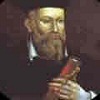
|
Nostradamus (1503 -
1566) Seer and Prophet
This
French astrologer had a cat named Grimalkin. The definition of a
grimalkin evolved to "A cat, especially an old female cat" or "an old
woman considered to be ill-tempered."
|
|

|
Francesco Petrarch (1304-1374)
Italian scholar, poet, and humanist
Petrarch
was
said to have been even more devoted to his cat than to the memory
of his great love, Laura. When the poet died, his cat was put to
death and mummified.
|
|

|
Edgar Allan Poe
(1809-1849) Author
Poe
used cats as symbols of the sinister in several of his stories,
although he himself owned and loved cats. His tortoiseshell cat
Catarina was the inspiration for his story The
Black
Cat.
In winter 1846, Catarina, a house cat, would curl up on the bed with
Poe's wife, who was dying of tuberculosis, and provide warmth.
|
|

|
Queen Victoria (1819-1901)
Queen
of England
Her favorite cat, a large Angora named White
Heather, outlived her and was inherited
by her son and successor King Edward VII. |
| R-T |

|
Maurice Joseph Ravel
(1875-1937) French classical composer
Ravel had several beloved Siamese cats. He penned L'enfant et les
sortilges ("The Child and the Enchantments") in collaboration with the
French writer Colette. The opera has a bravura cat duet sung by
the Tom Cat and the She Cat in an authentic-sounding feline 'language'.
|
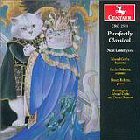 Other
notable people
who loved cats include classical composers: Tchaikovsky wrote
"Puss-In-Boots and the White Cat." Frédéric
Chopin's cat walked across the keyboard and Chopin liked the
melody
so much that he created an entire piece called "The Cat Waltz" around
it. Domenico Scarlatti's
cat Pulcinella composed a fugue. The cat was fond of prancing about on
the harpsichord and wrote Fugue in G Minor, L499; better known as The
Cat's Fugue. (Scarlatti may have helped a little, but the first few
bars, at least, are convincingly the work of a cat.) Stravinsky wrote "Lullabies for the
Cat." Many of these compositions were compiled onto a cd titled Purrfectly
Classical Other
notable people
who loved cats include classical composers: Tchaikovsky wrote
"Puss-In-Boots and the White Cat." Frédéric
Chopin's cat walked across the keyboard and Chopin liked the
melody
so much that he created an entire piece called "The Cat Waltz" around
it. Domenico Scarlatti's
cat Pulcinella composed a fugue. The cat was fond of prancing about on
the harpsichord and wrote Fugue in G Minor, L499; better known as The
Cat's Fugue. (Scarlatti may have helped a little, but the first few
bars, at least, are convincingly the work of a cat.) Stravinsky wrote "Lullabies for the
Cat." Many of these compositions were compiled onto a cd titled Purrfectly
Classical , available at Amazon.com. Camille Saint-Saens was a noted cat
and animal lover: his Maestoso theme (Symphony
No.3
in
C- 'Organ') was the theme music in the movie "Babe". , available at Amazon.com. Camille Saint-Saens was a noted cat
and animal lover: his Maestoso theme (Symphony
No.3
in
C- 'Organ') was the theme music in the movie "Babe". |
|

|
Pierre Auguste Renoir (1841-1919)
Artist
This
French artist loved cats and depicted them in several paintings.
Some of these paintings are available at AllPosters.com and Art.com
(search renoir cats) and Art.com
(search renoir cats)
|
|

|
Cardinal Richelieu, Armand Jean du
Plessis (1585-1642) French clergyman, noble man, and statesman
Cardinal
Richelieu,
Louis XIII's chief minister, kept dozens of cats, even
building a cattery at Versailles for his wards and leaving money to
maintain the cats after his death.
|
|
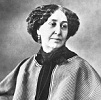
|
George Sand (1804-1876)
Author
Sand (real name Amantine Aurore Lucile Dupin Dudevant) reportedly ate
her breakfast from the same bowl as her cat Minou. |
|

|
Dr. Albert Schweitzer (1875-1965)
German theologian, musician, philosopher, and physician, Nobel Peace
Prize winner
Cats
played an important role in Dr. Schweitzer's life. He rescued a
kitten after he
heard her plaintive "meow" under the floor of a building under
construction. Named Sizi, she sat on his
desk as he wrote, often falling asleep on his left arm. During these
times Dr. Schweitzer, who was left-handed, wrote prescriptions with his
right hand. This went on reportedly for 23 years. Another cat, Piccolo,
slept on
papers stacked on Dr. Schweitzer's desk; if someone needed the papers,
they were required to wait till the cat awoke. Schweitzer once said:
"There are two means of refuge from the miseries of life: music and
cats."
|
|

|
Sir Walter Scott (177 -1832) Poet
and author (works include Rob Roy
and Ivanhoe)
Absorbed
in
folklore and the supernatural, Scott was devoted to cats, and a
portrait of him by John Watson Gordon shows the author at work at his
desk with his tabby, Hinx, lying close by. This tomcat was known to
terrorize Scott's dogs. Scott wrote: “Cats are a mysterious kind
of folk. There is more passing in their minds than we are aware
of.”
|
|

|
Dusty Springfield
(1939-1999) British pop
singer
Dusty (real name Mary
Isabel Catherine Bernadette O'Brien) adored cats. She was an
advocate for several animal-protection groups.
In her will, she made provision for Nicholas to be taken care of by a
friend.
|
|

|
Theophile Steinlen (1859-1923) Swiss
artist
Steinlen's
Paris
home was known as "CatsCorner". In addition to paintings and
drawings, he also did sculpture on a limited basis, most notably
figures of cats that he had great affection for as seen in many of his
paintings. The paintings below, and more, are available at AllPosters.com and Art.com
and Art.com
|
|

|
Martha Stewart (1941- )
American business magnate, television host, author and magazine
publisher
Martha shares her home with calico Persians Empress Tang and
Princess Peony, blue-point Himalayans Frost and
Snow, Bartok,
Verdi,
Vivaldi, and Mozart. |
|
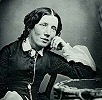
|
Harriet
Beecher
Stowe
(1811-1896) Author
Harriet
had
a large Maltese cat called Calvin (her husband's name was Calvin
also). He arrived on Harriet's doorstep one day, moved in and took over
the household. Harriet enjoyed his company; Calvin, she wrote, was
assertive, domineering, and prone to sit on her shoulders while she
wrote her manuscripts, overseeing everything she wrote.
|
|

|
Nikola
Tesla
(1856-1943) Eastern European inventor, physicist, mechanical engineer
and
electrical engineer
Sparks
generated
when stroking his pet cat Macak led him to investigate
electricity. PBS provides an interesting article about the affection
between Tesla and Macak.
|
|

|
Mark
Twain
(Samuel Clemens) (1835-1910) American humorist, novelist,
writer and lecturer
Twain
kept
eleven cats at his farm in Connecticut. Twain wrote, "I simply
can't
resist a cat, particularly a purring one. They are the cleanest,
cunningest, and most intelligent things I know, outside of the girl you
love, of course." He also quipped, "If you hold a cat by the tail
you learn things you cannot learn any other way"; and "The cat, having
sat upon a hot stove lid, will not sit upon a hot stove lid again. But
he won't sit upon a cold stove lid, either.” Some of the cats'
names: Sour Mash, Apollinaris, Zoroaster, Blatherskite,
Beelzebub |
| U-Z |

|
Louis Wain (1860-1939)
English
artist
Black-and-white cat Peter
was the loved companion of Wain's wife Emily, and he taught Peter
tricks to amuse her. He began to draw extensive
sketches of the large black and white cat. He later wrote of Peter, "To
him properly belongs the foundation of my career, the developments of
my initial efforts, and the establishing of my work." Peter
appeared in many of Wain's early drawings.
|
|

|
Charles Dudley Warner
(1829-1900) Essayist and novelist
Calvin, a cat originally belonging to Harriet Beecher Stowe, went to
live with Warner when Stowe moved. Warner became devoted to him and
wrote about him in My Summer in a Garden.
|
|
 |
Andrew Lloyd Webber (1948-
) English composer of musical theatre (works include Cats, Phantom
of
the Opera)
In 2007, Webber's 6-month-old Turkish Vant Otto
wiped out the score to his sequel to Phantom of the Opera by
stepping on the keyboard. "I was trying to write some new music, he got
into the grand piano, jumped onto the computer and destroyed the entire
score for the new `Phantom' in one fell swoop." [Otto was run
over by a car outside Webber's estate later that year.] |
|

|
H.G. Wells (1866-1946)
English author
His cat, Mr. Peter Wells, had the habit, if a guest talked too long or
too loudly, of getting up from its chair, protesting loudly and
stalking out of the room.
|
|

|
Vanna
White
(1957- ) TV celebrity
The
world-famous letter turner frequently
mentioned the two cats she owned (one named Rhett
Butler) on "Wheel of
Fortune".
|